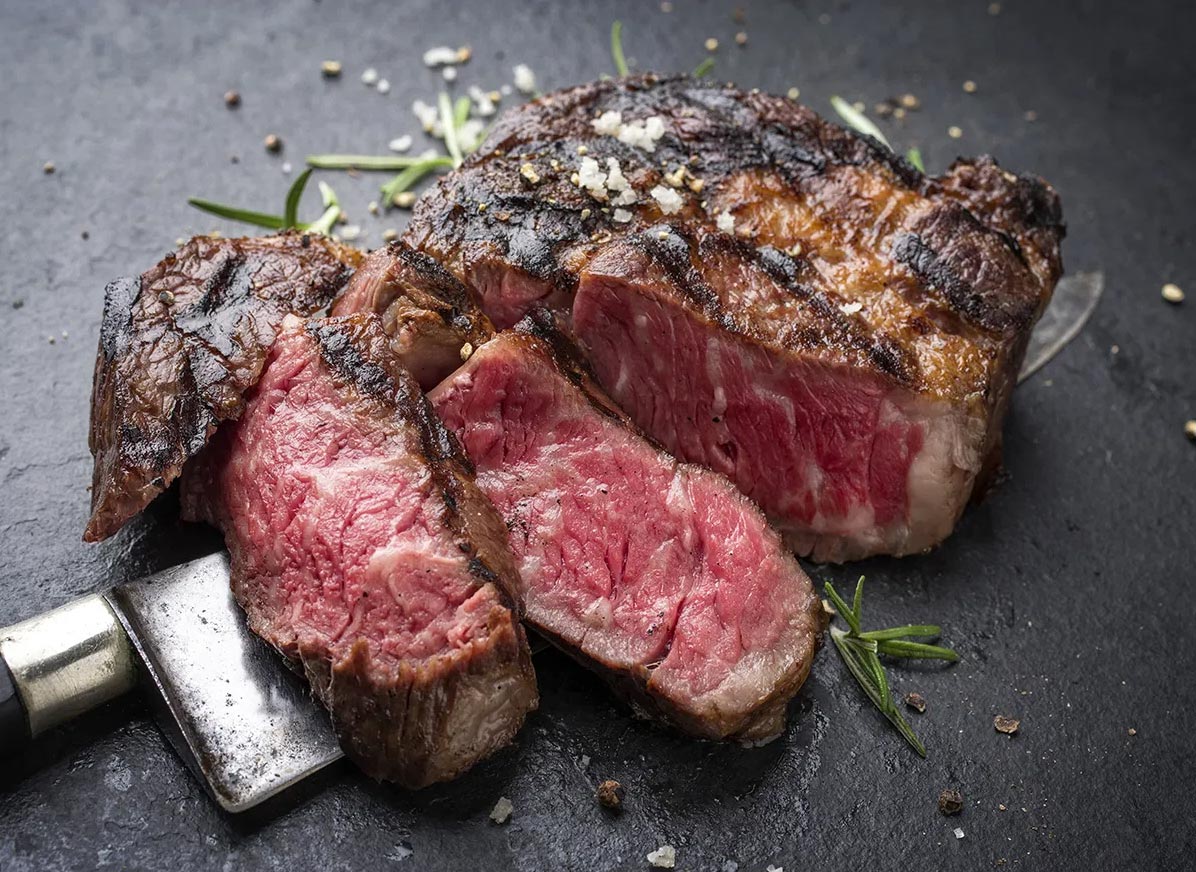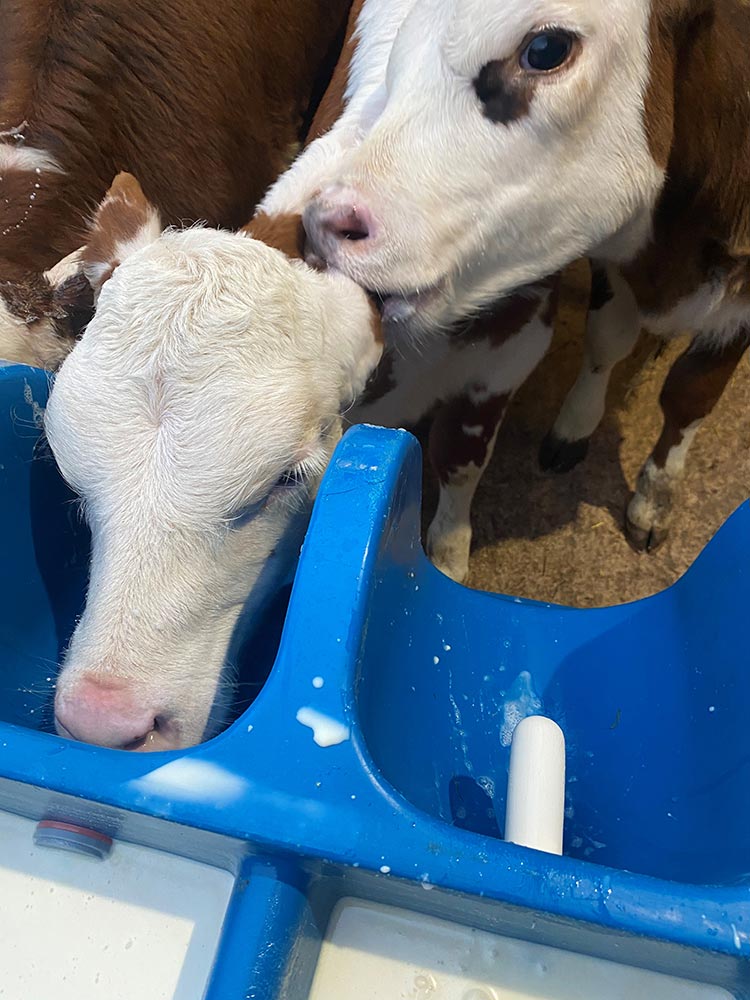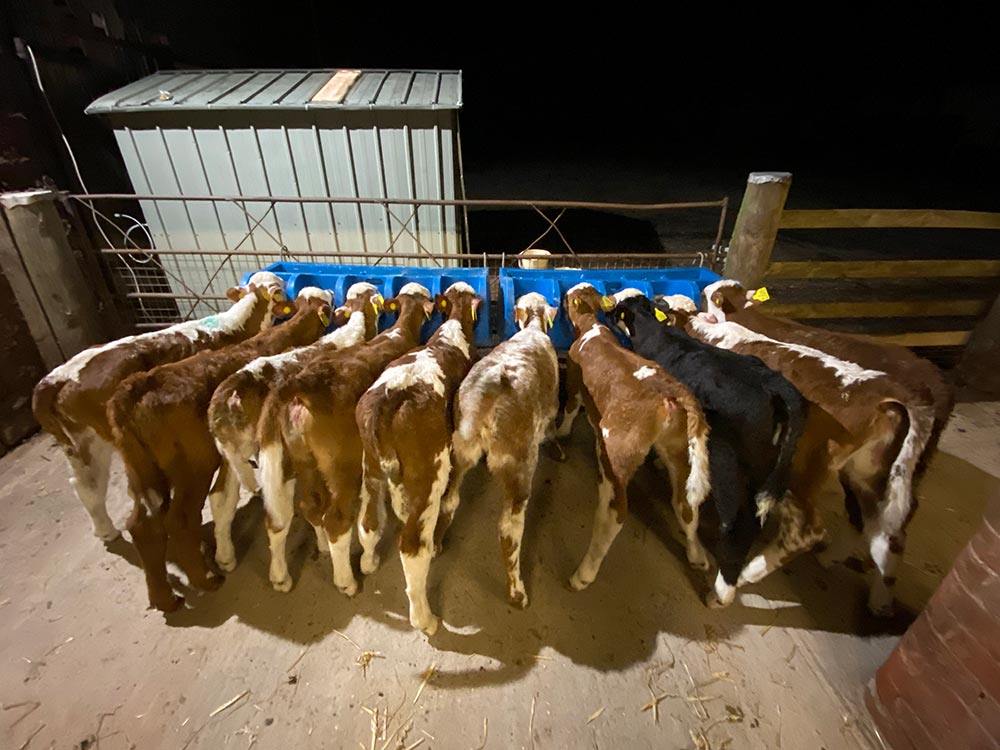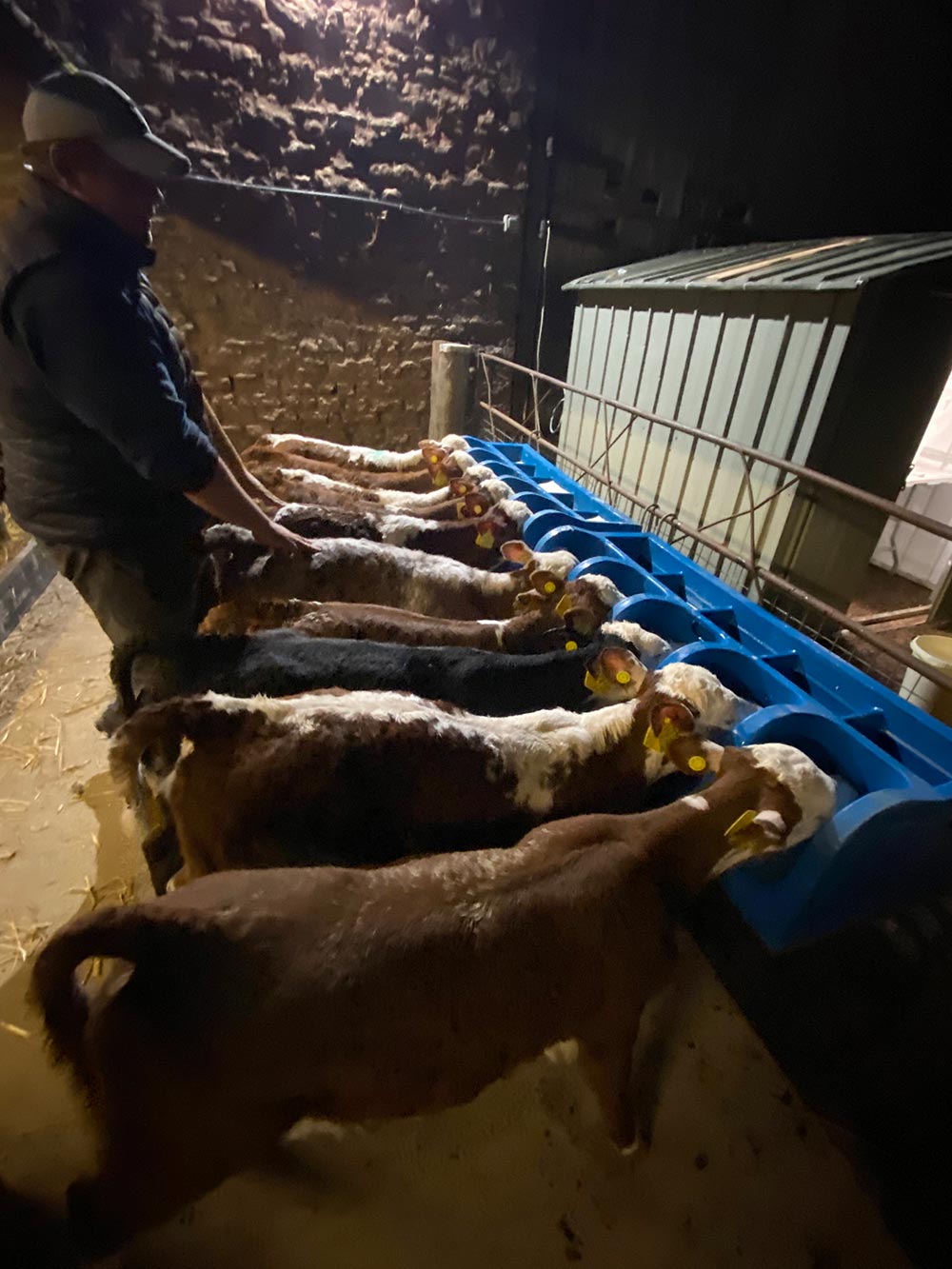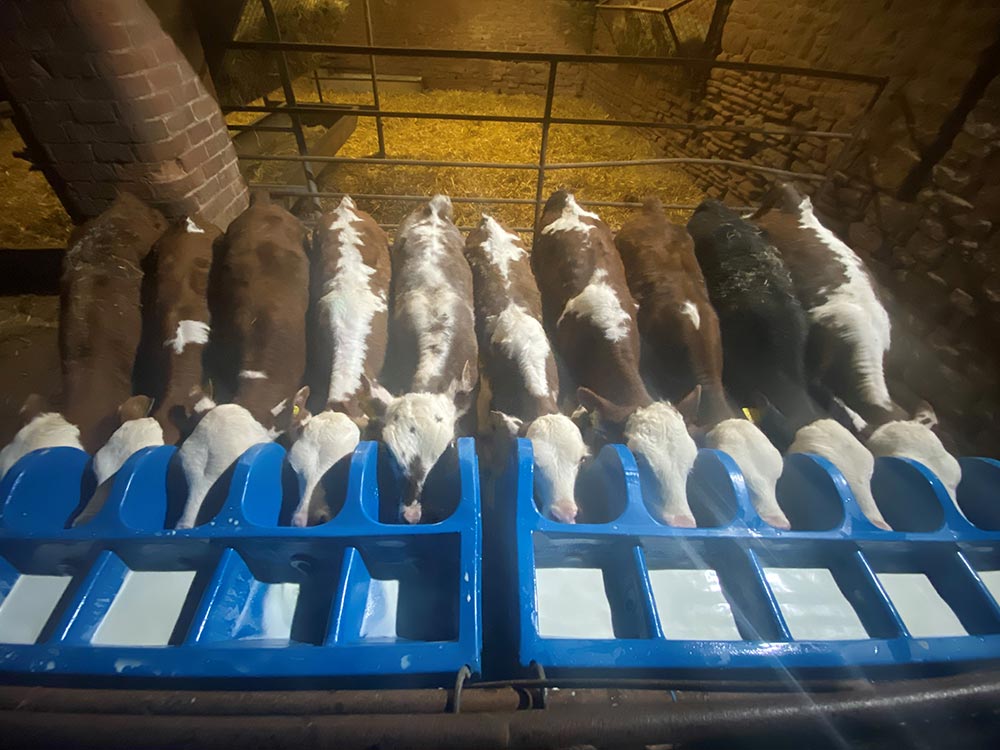Hereford Herd
Our Hereford suckler herd are growing fast.
We will be purchasing a Hereford bull in the Summer of 2022 as these girls will be ready to breed in August 2022 (about 2 years old) which will hopefully bring about April born calves ready for the Spring flush of growth of forage.
Wagyu at Townsend
For those steak connoisseurs, Kobe or Wagyu will need no introduction! However, for those that aren’t experts, the thought of producing Wagyu beef at our own farm, with natural fat marbling like no other beef, is what dreams are made of! When our TB restrictions are lifted we will be looking to invest in a very small herd of Wagyu animals to provide some very special meat for sale.
What is Wagyu Beef?
The roots of Wagyu’s superiority can be traced to the late 1800s. During the 1880s, several breeds of European cattle were introduced to Japan and crossbred with native Japanese breeds. The four strains of cattle that resulted dominate the Japanese beef trade to this day.
These four varieties are the only true strains of Wagyu cattle:
- Japanese Black: Originally raised as work cattle, Japanese Black beef is prized for its intensive marbling.
- Japanese Brown: A leaner, healthier breed of cattle, known for its light, mild taste.
- Japanese Shorthorn: While also lean, Japanese Shorthorn is rich in inosinic and glutamic acid, highly prized for the savoury flavour they give beef.
- Japanese Polled: Similar to Brown and Shorthorn in leanness, Japanese Polled is known for a gamier texture and rich, meaty taste.
Over 90% of all Wagyu are Japanese Black strains, so when someone says “Wagyu,” they are usually referring to Japanese Black cattle.
In developing Wagyu cattle, breeders took extraordinary care. Special feeds were created out of forage, grasses, and rice straw, then supplemented with corn, barley, soybean, wheat bran, and in some cases, even beer or sake. It is sometimes said that herders would massage their cattle to alleviate muscle tension caused by cramped spaces (though many people consider this only a myth).
Marbling: The Wagyu Difference
As a result of these breeding methods, combined with longer periods for fattening, Wagyu cattle have an unparalleled level of marbling.
Wagyu marbling is also better tasting. Wagyu fat melts at a lower temperature than any other cattle’s, resulting in a rich, buttery flavour unseen in other strains of beef. This fat is also unsaturated and high in Omega-3 and Omega-6 fatty acids, meaning not only is Wagyu marbling more delicious, but it’s also more healthy.
There are several strains of Japanese Black cattle, including the highly prized Tajima-Gyu strain. The most sought after regional varieties of Wagyu all come from Tajima-Gyu cattle, including Matsusaka, Omi, and Kobe beef.
Kobe beef is the crème de la crème – it is the most sought after and most expensive beef in the world.
Why are Kobe beef prices so high?
Because Kobe beef exemplifies everything that makes Wagyu better. Kobe beef is considered the most abundantly marbled in the world, brimming with the creamiest, most decadent, most flavourful streaks of fat a steak can have.
A major factor in the quality of Kobe steaks is the uncompromising regulations the region uses for its cattle. To be labelled Kobe, cattle must meet the following seven standards upon slaughter:
- Bullock (steer) or virgin cow.
- Tajima-Gyu born within Hyogo Prefecture.
- Fed on a farm within Hyogo Prefecture.
- Meat processed within Hyogo Prefecture.
- Marbling rating (BMS) of 6 or higher on a 12 point scale.
- Meat quality rating of 4 or higher on a 5 point scale.
- An overall weight not exceeding 470 kg.
Because of these stringent standards, only 3,000 head of cattle qualify as authentic Kobe cattle each year.
Domestic Wagyu and Kobe-Style Beef
In recent years, Wagyu cattle have been exported from Japan to countries like Australia, UK and America. In these countries, such cattle are referred to as “Domestic Wagyu,” and are raised under controlled breeding programs, ensuring true Wagyu quality.
